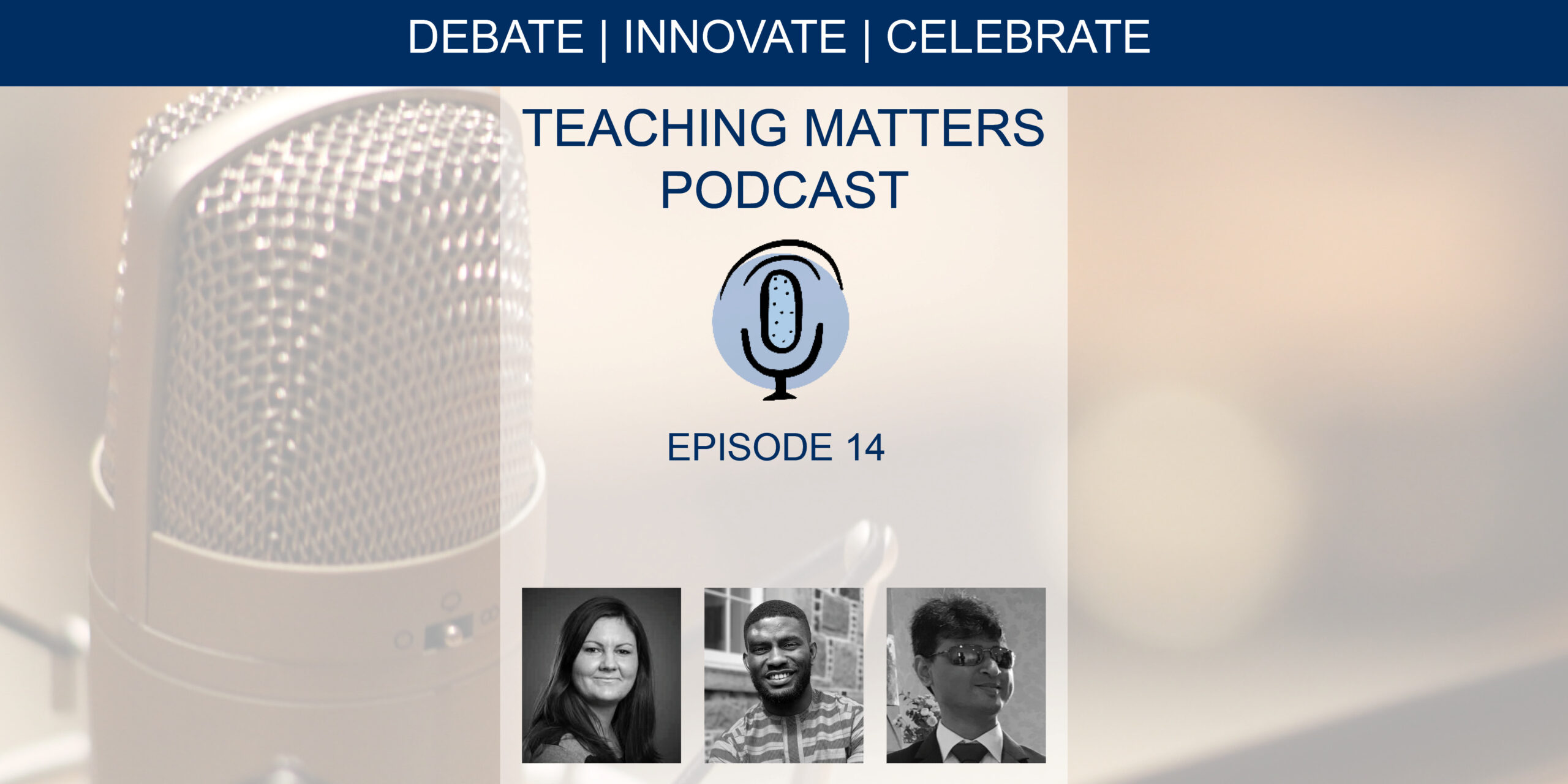
Welcome to podcast episode 14: Commonwealth Scholars’ experiences of diversity and inclusion
The Teaching Matters podcast accompanies and complements the Teaching Matters blog, adding another space for students and staff to have conversations and debates around learning and teaching at the University of Edinburgh. Students and staff are invited to engage in topical conversations, which are recorded and edited as podcast episodes. Episodes 12 to 14 align with the Inclusivity in the Curriculum mini-series, which was co-edited by members of a task group established by the Senate Learning and Teaching Committee to promote inclusion, equality and diversity in the curriculum.
Episode 14 is hosted by Annabel Boud, Programme Manager Policy at the Commonwealth Scholarship Commission (CSC), based in London. Led by international development objectives, CSC offers scholarships (undergraduate and postgraduate) to students living in Commonwealth countries to come and study in the UK. Since 1960, nearly 1000 Commonwealth students have studied at The University of Edinburgh under this scheme. This year, 29* students from countries such as Nigeria, Pakistan, Uganda, Sri Lanka and Bangladesh are enrolled in programmes at Edinburgh, from a MSc in Global Health Policy to a PhD in Molecular Plant Sciences.
In this episode, Annabel is joined by two current Commonwealth students: Ugo Okoye, a Masters student in Africa and International Development, and Vivek Pachpande, who is reading philosophy for his doctorate. Ugo joins the conversation from Nigeria via Skype where, at the time of recording, he was conducting his fieldwork for his dissertation.
Led by Annabel, Ugo and Vivek discuss how diverse and inclusive they have found higher education so far, during their study abroad in Scotland. They reflect on experiencing what counts as valid knowledge and assessment in a different culture. For example, Ugo suggests that the medium of song and dance in Nigeria may be a more authentic way of assessing students’ comprehension of concepts. They also discuss the differences between Western and Eastern philosophies of education, which makes for a very interesting conversation.
Happy listening…!
- This figure does not include students enrolled as distance learners.
Teaching Matters podcast credits:
Guest host: Annabel Boud (Commonwealth Scholarship Commission)
Director and Editor: Jenny Scoles and Sarah Thomas (IAD)
Advisors: Annabel Boud


 Annabel Boud
Annabel Boud Ugochukwu Okoye
Ugochukwu Okoye Vivek Pachpande
Vivek Pachpande
Inclusion and diversity in education could be enhanced by expanding the staff capacity to accomodate those that are different from the main stream. This set of people possesses the pratical and scholarly experience to measure, assess and evaluate students of minority background. This is because some aspects of minority groups are not captured in the traditional curriculum and could only be understood by staff of similar background.